Aug . 27, 2025 02:40 Back to list
Top Spherical Roller Bearing Material Exporter - High-Performance Alloys
Navigating the Global Landscape of Spherical Roller Bearing Material Export
In high-performance industrial applications, the reliability and durability of components are paramount. Spherical roller bearings (SRBs) are critical for machinery operating under heavy loads, misalignment, and vibration. The quality of a bearing hinges significantly on its material composition and the precision of its manufacturing. This article delves into the intricate world of the spherical roller bearing material exporter, highlighting the technical expertise, stringent quality controls, and advanced solutions offered by leading providers. We will explore the journey from raw material sourcing to the global supply chain, emphasizing the factors that define a superior product and a trustworthy supplier.
For B2B decision-makers and engineers, understanding the core competencies of a dedicated spherical roller bearing material exporter is essential for ensuring operational efficiency and long-term cost-effectiveness. The global demand for these robust bearings necessitates a supply chain capable of delivering not just components, but engineered solutions that meet diverse industrial requirements.
The Meticulous Manufacturing Process of Spherical Roller Bearing Materials
The journey of a spherical roller bearing begins with the selection of high-grade raw materials, primarily specialized bearing steels. A reputable spherical roller bearing material manufacturer meticulously controls this process to ensure the final product meets exacting performance standards.
Material Selection and Preparation: The Foundation of Durability
Bearing steels such as AISI 52100 (100Cr6 or GCr15) are commonly used due to their excellent hardness, wear resistance, and fatigue strength. For applications demanding higher corrosion resistance or elevated temperatures, stainless steels (e.g., AISI 440C) or high-nitrogen steels are selected. Cage materials typically include pressed steel, brass (e.g., CuZn37), or polyamide, chosen for their strength, low friction properties, and resistance to lubricants and operating temperatures.
Key Manufacturing Stages: Precision Engineering in Action
- 1. Raw Material Sourcing & Inspection: Verified raw materials (steel bars, tubes) undergo ultrasonic testing and spectral analysis to confirm chemical composition and absence of internal defects.
- 2. Forging/Casting: Inner and outer rings, and rollers are initially shaped. Forging enhances grain structure, improving fatigue life and strength. For specialized large bearings, centrifugal casting may be employed for cost efficiency.
- 3. Annealing & Heat Treatment: This crucial stage involves processes like carburizing, nitriding, or through-hardening. Heat treatment optimizes the steel's microstructure, achieving target hardness, toughness, and residual stress profiles, directly impacting service life and load carrying capacity.
- 4. CNC Machining & Grinding: Advanced CNC lathes, grinders, and super-finishing machines precisely shape and dimension the bearing components. Tolerances are held to microns, ensuring the geometric accuracy (roundness, cylindricity, parallelism) vital for smooth operation and minimal friction.
- 5. Assembly: Processed rings, rollers, and cages are meticulously assembled in cleanroom environments, often with automated machinery to maintain precision.
- 6. Quality Control & Testing: Each bearing undergoes rigorous inspection, including dimensional checks, hardness testing, run-out measurements, and vibration analysis. Non-destructive testing (NDT) methods like eddy current and magnetic particle inspection are used to detect surface or subsurface flaws.
- 7. Packaging & Despatch: Bearings are carefully preserved with anti-corrosion agents and packed to prevent damage during transit, ready for export.
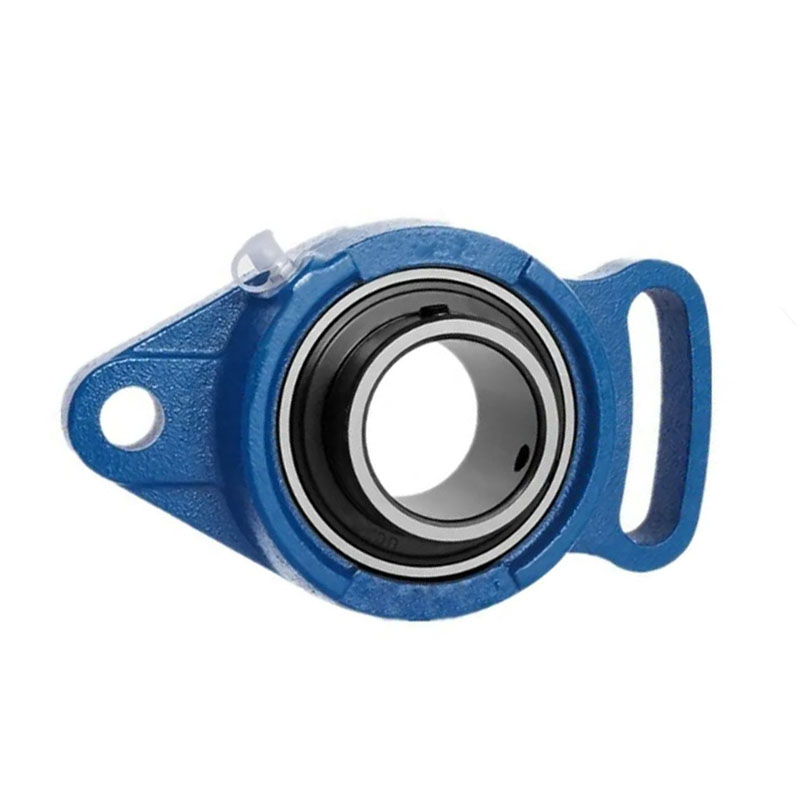
Adherence to International Standards
All stages of manufacturing and testing conform to international standards such as ISO 15: Rolling bearings – Radial bearings – Boundary dimensions, ISO 281: Rolling bearings – Dynamic load ratings and rating life, and ANSI/ABMA standards. These benchmarks ensure interchangeability, reliable performance, and predictable service life across diverse applications. Target industries benefiting from these materials include petrochemical, metallurgy, mining, pulp & paper, and water supply & drainage, where the bearings demonstrate superior energy saving through reduced friction and exceptional corrosion resistance in harsh environments.
Technical Specifications and Material Advancements
The performance of SRBs is defined by a range of technical parameters, influenced heavily by the chosen materials and manufacturing precision. As a professional spherical roller bearing material exporter, understanding and communicating these specifications is vital.
Key Technical Parameters for Spherical Roller Bearing Materials
| Parameter | Description | Typical Range/Value |
|---|---|---|
| Material Hardness (HRC) | Resistance to indentation and wear, crucial for fatigue life. | 58-62 HRC (for rings and rollers) |
| Dynamic Load Rating (C) | Theoretical constant radial load that a group of identical bearings can endure for 1 million revolutions. | Varies by size; e.g., 200-1000 kN |
| Static Load Rating (Co) | Maximum static radial load that a bearing can withstand without permanent deformation. | Varies by size; e.g., 250-1250 kN |
| Operating Temperature Range | Maximum and minimum temperatures a bearing can withstand without material degradation. | -30°C to +200°C (standard steel); up to +350°C (stabilized steel) |
| Fatigue Limit | Stress level below which a material can theoretically endure an infinite number of load cycles. | Typically 15-20% of tensile strength for bearing steels |
| Corrosion Resistance | Ability to resist degradation from chemical reactions in corrosive environments. | Enhanced with stainless steel or special coatings |
Modern advancements in metallurgical science have led to the development of "clean steel" processes, reducing non-metallic inclusions and significantly improving fatigue life. Bainitic heat treatment, for instance, offers superior toughness and resistance to contact fatigue compared to conventional quenched and tempered martensite. These innovations directly contribute to the extended service life and reliability that a leading spherical roller bearing material supplier can offer.
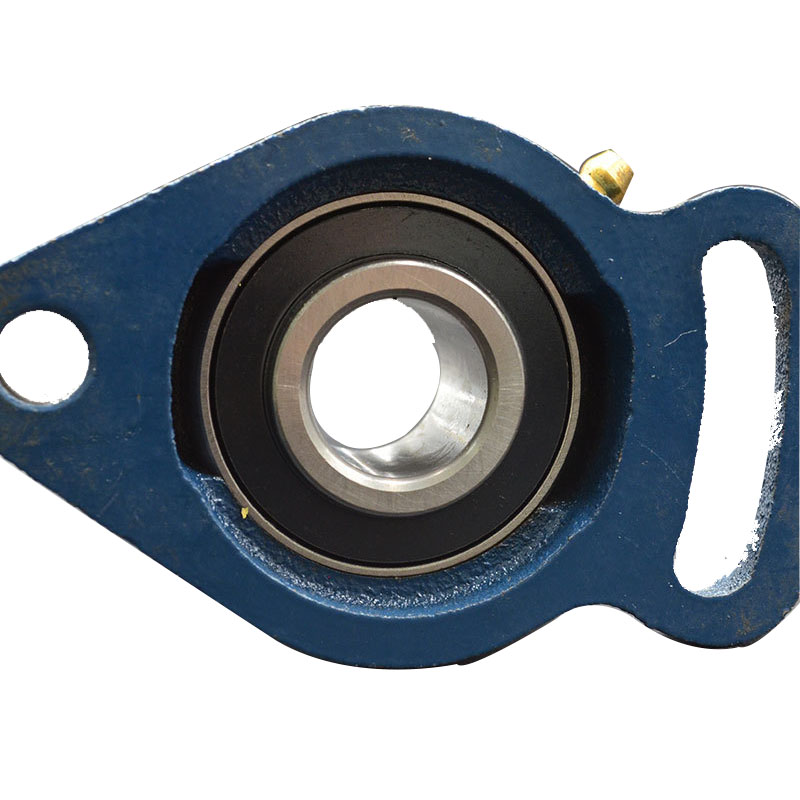
Industry Trends and Application Scenarios for SRB Materials
The demand for robust and reliable bearings is continuously growing across various sectors. A proficient spherical roller bearing material exporter remains agile in responding to these evolving industrial needs, often providing a diverse range of materials and designs.
Target Industries and Critical Applications:
- Mining & Construction: Conveyors, crushers, vibrating screens, and heavy-duty vehicles require SRBs that can withstand extreme shock loads, contamination, and harsh temperatures. Materials designed for high impact resistance and improved sealing solutions are paramount.
- Pulp & Paper: Dryer sections, calenders, and press rolls operate at high speeds and temperatures in humid environments. Here, material stability at elevated temperatures and resistance to corrosive media are critical.
- Wind Energy: Main shafts, gearboxes, and generators in wind turbines face constant, fluctuating loads and require materials that offer extended fatigue life and reliability over decades. Special surface treatments and optimized raceway geometries are often employed.
- Heavy Industry (Steel, Cement): Continuous casters, rolling mills, and rotary kilns involve very high temperatures, heavy static and dynamic loads, and often abrasive conditions. SRBs with enhanced heat treatment and specific cage designs are essential.
- Marine & Offshore: Propeller shafts, winches, and drilling equipment are exposed to corrosive saltwater environments. Stainless steel variants or protective coatings are frequently specified.
Current trends in the SRB market emphasize a drive towards increased energy efficiency, longer service intervals, and enhanced performance in extreme conditions. This translates to innovations in material science, such as the development of hybrid bearings (steel rings with ceramic rollers) for high-speed, high-temperature, or electrically insulated applications, and advanced lubrication solutions.

Key Technical Advantages of Superior Spherical Roller Bearing Materials
The selection of superior materials by a dedicated spherical roller bearing material exporter directly translates into tangible operational advantages for end-users. These benefits extend beyond mere component longevity, impacting overall system efficiency and maintenance costs.
Enhanced Performance Metrics:
- Extended Service Life: High-purity bearing steels, combined with optimized heat treatments, dramatically reduce the risk of material fatigue and premature failure. This leads to significantly longer operational periods between maintenance cycles.
- Increased Load Carrying Capacity: Advanced material compositions and precision rolling element geometries allow for higher dynamic and static load ratings, enabling the use of smaller bearings for the same load or extending the lifespan under existing loads.
- Superior Resistance to Contamination: Materials with improved surface hardness and specific surface finishes are more resistant to indentations and wear caused by particulate contamination in lubricants, a common cause of bearing failure.
- Corrosion Resistance: For environments exposed to moisture, chemicals, or saltwater, materials like high-grade stainless steels or specialized coatings ensure the structural integrity and performance of the bearing, preventing rust and chemical degradation.
- Energy Efficiency: Precision manufacturing and high-quality materials contribute to smoother running and reduced friction within the bearing. This minimizes energy loss, leading to lower operating temperatures and substantial energy savings over the bearing’s lifespan.
- Resistance to Vibration and Shock Loads: Materials with optimized toughness and microstructures can better absorb and dissipate shock loads, preventing catastrophic failure in applications prone to heavy impacts or severe vibrations.

These material-driven advantages ensure that machinery operates with higher uptime, reduced maintenance costs, and improved overall productivity, underscoring the value provided by a knowledgeable spherical roller bearing material manufacturer.
Vendor Comparison and Selection Criteria for Spherical Roller Bearing Material Exporters
Choosing the right spherical roller bearing material exporter is a strategic decision that can significantly impact project success and long-term operational costs. It requires a thorough evaluation beyond just price.
Key Factors for Vendor Evaluation:
- Quality Certifications: Look for ISO 9001, ISO 14001, and specific industry certifications (e.g., for aerospace, automotive) that attest to robust quality management systems and environmental responsibility.
- Material Expertise and Traceability: A reliable exporter should provide complete material traceability from raw material to finished product, along with detailed material certificates.
- Technical Support and Engineering Capability: Access to experienced application engineers who can assist with bearing selection, installation guidelines, and troubleshooting is invaluable.
- Global Logistics and Supply Chain Reliability: Evaluate their capacity for timely delivery, inventory management, and ability to navigate international shipping complexities.
- Customization Capabilities: The ability to provide tailored solutions for unique application requirements is a significant advantage.
- After-Sales Service and Warranty: A comprehensive warranty and responsive customer support demonstrate confidence in product quality.
Comparative Overview of SRB Suppliers:
| Feature | Tier 1 Global Supplier (Example) | Specialized Regional Exporter (Example) |
|---|---|---|
| Product Range | Extensive, standard to highly customized, all bearing types. | Focused on SRBs, good range within specialty. |
| R&D Investment | High, pioneering new materials and technologies. | Moderate, adapts proven technologies. |
| Lead Times | Variable, large stock for standard; longer for custom. | Often shorter for specialized standard products. |
| Technical Support | Extensive, global engineering teams. | Dedicated, specialized in SRB applications. |
| Cost-Effectiveness | Premium pricing, justified by brand and extensive R&D. | Competitive, excellent value for specific needs. |
| Customization | High capacity for complex, large-scale custom projects. | Responsive for medium to small batch custom orders. |
Ultimately, the choice depends on specific project requirements, budget constraints, and the desired balance between global brand assurance and specialized, responsive service from a dedicated spherical roller bearing material supplier.
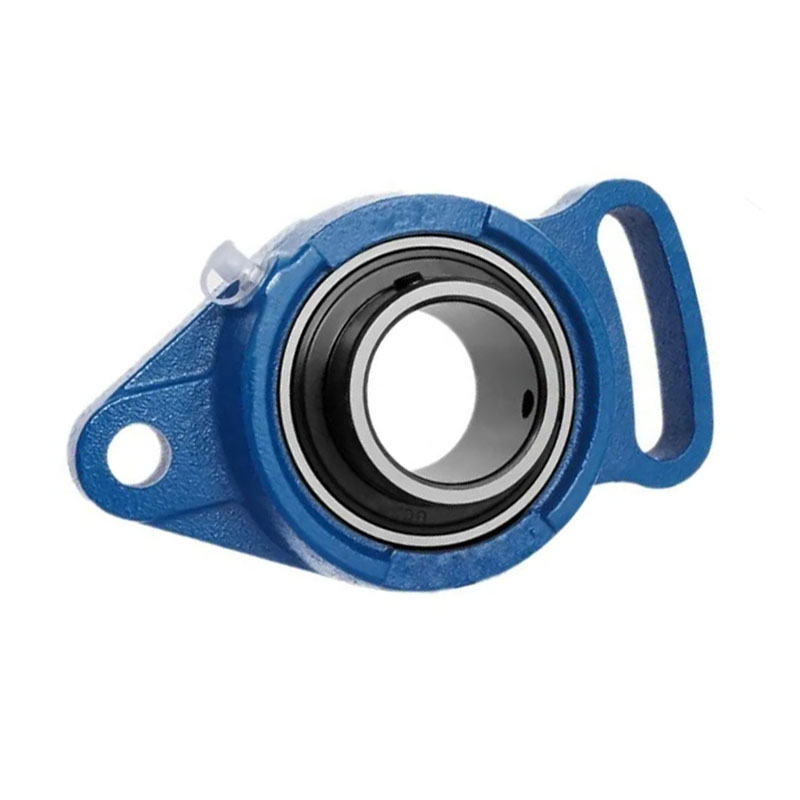
Customized Solutions and Collaborative Development
Not all industrial applications can be served by off-the-shelf spherical roller bearings. Many unique operating conditions necessitate specialized designs, material compositions, or surface treatments. A leading spherical roller bearing material exporter differentiates itself through its ability to provide bespoke solutions.
Tailoring Bearings to Specific Demands:
- Material Modification: This could involve using specific steel alloys for extreme temperatures, incorporating advanced ceramics for electrical insulation or high-speed applications, or applying specialized coatings (e.g., black oxide for corrosion resistance, or PVD/DLC for wear protection and low friction).
- Design Adaptations: Customization may include specialized cage designs for higher speeds or specific lubrication requirements, modified internal geometries for improved load distribution or misalignment capabilities, or integrated sealing solutions for contaminated environments.
- Heat Treatment Optimization: Fine-tuning heat treatment processes can produce specific hardness profiles, improve dimensional stability at elevated temperatures, or enhance resistance to white etching cracks (WEC) – a critical consideration in wind turbine applications.
- Surface Engineering: Surface texturing, super-finishing, or specialized chemical treatments can improve lubrication film formation, reduce friction, and increase resistance to wear and scuffing.
Engaging in collaborative development allows end-users to work directly with the spherical roller bearing material manufacturer to engineer solutions perfectly aligned with their operational parameters. This often involves sharing detailed application data, engaging in iterative design reviews, and conducting joint testing to validate performance before full-scale production. This approach significantly de-risks new projects and optimizes performance in demanding applications.
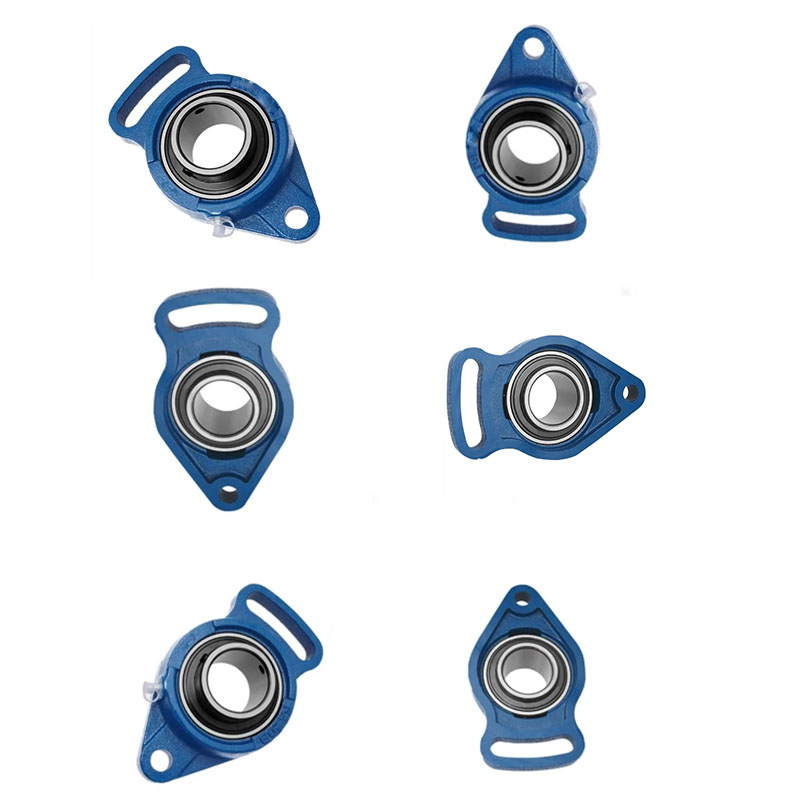
Real-World Application Case Studies and Customer Success
The true measure of a spherical roller bearing material exporter's capability lies in the successful deployment of their products in challenging industrial environments. Here are illustrative examples of how superior bearing materials deliver tangible benefits.
Case Study 1: Heavy-Duty Conveyor System in a Mining Operation
A large mining company was experiencing premature bearing failures (every 6-8 months) on their primary ore conveyor systems due to constant heavy shock loads and high levels of abrasive dust. A specialist spherical roller bearing material supplier proposed bearings manufactured with a proprietary case-hardened steel and an optimized roller geometry for increased impact resistance, along with integrated heavy-duty seals.
- Result: The service life of the bearings extended to over 30 months, reducing downtime by 70% and saving approximately $150,000 annually in maintenance and replacement costs. Customer feedback highlighted significantly reduced vibration and smoother operation.
Case Study 2: High-Temperature Paper Machine Dryer Section
A major paper mill faced challenges with bearing seizure and lubricant degradation in their dryer section, where temperatures frequently exceeded 150°C. Standard bearings degraded rapidly. A solution involved SRBs with high-temperature stable steel (stabilized for up to 250°C) and a special polyetheretherketone (PEEK) cage material, coupled with a high-performance synthetic grease.
- Result: Bearing life increased from 12 months to over 4 years. The mill reported consistent machine operation, significantly lower energy consumption due to reduced friction at high temperatures, and elimination of costly emergency repairs.
Case Study 3: Wind Turbine Main Shaft Bearing Upgrade
A wind farm operator struggled with premature failure of main shaft bearings (due to white etching cracks, WEC) in their older turbine models. The selected spherical roller bearing material exporter supplied bearings made from advanced "super-tough" steel with an optimized microstructure resistant to WEC formation, specifically developed for harsh wind turbine conditions.
- Result: The new bearings have been in operation for over 8 years without any WEC-related failures, surpassing the original equipment's lifespan by a factor of two. This upgrade minimized turbine downtime and maximized power generation.
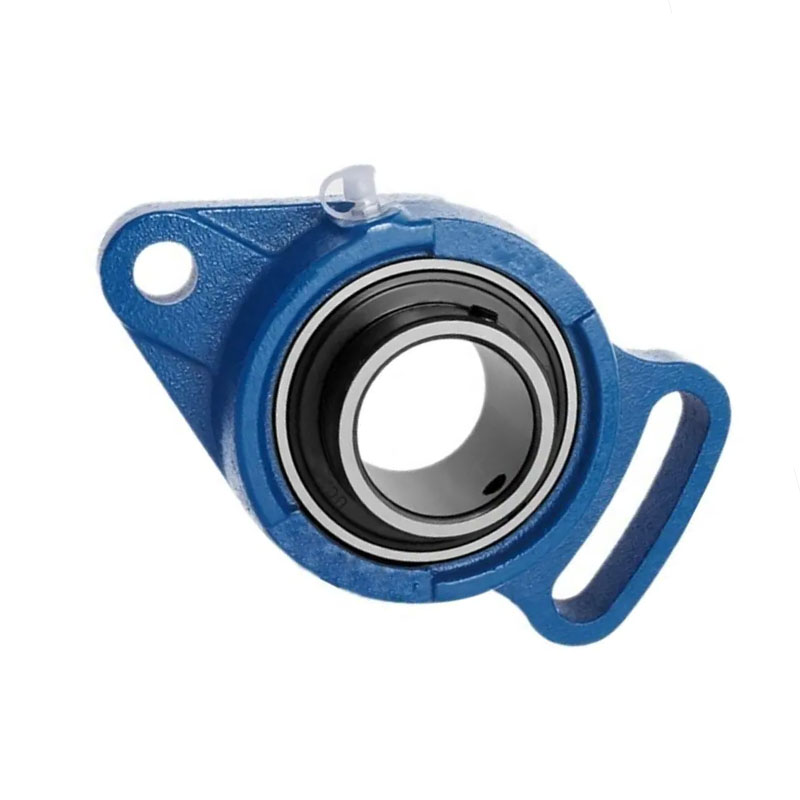
Ensuring Trust and Reliability: Certifications, Support, and Warranty
For B2B partners, the decision to engage with a spherical roller bearing material exporter is built on trust, which is underpinned by verifiable credentials, transparent processes, and steadfast support.
Authoritativeness through Certifications and Partnerships:
Reputable exporters will proudly display adherence to international quality management standards like ISO 9001:2015, which ensures consistent product quality and customer satisfaction. Environmental compliance (ISO 14001), occupational health and safety (ISO 45001), and industry-specific certifications (e.g., IATF 16949 for automotive or AS9100 for aerospace materials, if applicable) further reinforce their commitment to excellence. Long-standing relationships with global OEM partners and a history of successful large-scale projects serve as strong indicators of reliability and experience. Many leading spherical roller bearing material exporters have decades of service, boasting extensive in-house R&D capabilities and state-of-the-art testing laboratories providing verifiable test data.
Trustworthiness: Lead Time, Warranty, and Support:
- Lead Time & Fulfillment: Standard bearing materials typically have lead times ranging from 4-6 weeks, with expedited options available for critical requirements. Custom solutions or specialized large-batch orders may require 8-12 weeks, depending on complexity. Efficient inventory management and robust logistics networks ensure timely delivery worldwide.
- Warranty Commitments: A standard warranty of 12-24 months against manufacturing defects is common, often extending to specific performance guarantees under defined operating conditions. Clear terms and conditions are provided, detailing coverage and claim processes.
- Customer Support: Comprehensive after-sales support includes technical assistance, installation guidance, troubleshooting services, and access to a dedicated team of engineers. Many exporters offer 24/7 online support portals and regional service centers to ensure prompt responses.
Frequently Asked Questions (FAQ)
Q1: What are the primary steel grades used for spherical roller bearing materials?
A1: Commonly, high-carbon chromium bearing steels like AISI 52100 (100Cr6 or GCr15) are used for rings and rollers due to their excellent hardness and fatigue resistance. For specific applications, stainless steels (e.g., AISI 440C) or carburizing steels might be employed.
Q2: How do you ensure the quality of exported spherical roller bearing materials?
A2: Quality is ensured through stringent raw material inspection, adherence to international manufacturing standards (ISO, ABMA), multi-stage quality control checks including dimensional, hardness, and vibration testing, and complete material traceability. Certifications like ISO 9001 attest to our robust quality management systems.
Q3: Can you provide customized spherical roller bearing material solutions?
A3: Yes, we specialize in customized solutions, including special material alloys for extreme temperatures or corrosion resistance, specific heat treatments, modified internal geometries, and integrated sealing options, all tailored to meet unique application requirements.
Q4: What are the typical lead times for your spherical roller bearing materials?
A4: For standard products, lead times typically range from 4 to 6 weeks. Custom or high-volume orders may require 8 to 12 weeks, depending on the complexity and current production schedule. We offer expedited shipping options for urgent needs.
Q5: What kind of after-sales support do you offer?
A5: We provide comprehensive after-sales support, including expert technical assistance for installation and maintenance, troubleshooting, and access to our engineering team for application-specific queries. Our standard warranty covers manufacturing defects for 12-24 months.

Conclusion
The role of a reliable spherical roller bearing material exporter is indispensable for industries worldwide that depend on the uncompromised performance of their machinery. From stringent material selection and advanced manufacturing processes to rigorous quality control and comprehensive after-sales support, every step ensures the delivery of components that meet and exceed expectations in the most demanding applications. By partnering with a leading spherical roller bearing material supplier, businesses can guarantee the longevity, efficiency, and reliability of their operations, translating into significant long-term value and competitive advantage in a global marketplace driven by precision and performance.
References
- ISO (International Organization for Standardization). ISO 281:2007 Rolling bearings – Dynamic load ratings and rating life. Available from: www.iso.org
- ABMA (American Bearing Manufacturers Association). Standards. Available from: www.abma.org
- Harris, T.A., & Kotzalas, M.N. (2007). Essential Concepts of Bearing Technology (5th ed.). CRC Press.
- Lundberg, G., & Palmgren, A. (1947). Dynamic Capacity of Rolling Bearings. Acta Polytechnica, Mechanical Engineering Series 1, No. 3.
- Bhadeshia, H.K.D.H. (2001). Bainite in Steels. Institute of Materials, Minerals and Mining.
Latest news
-
Custom Small Spherical Bearings - Precision Solutions for Global Industries | BTZ Bearing
NewsNov.23,2025
-
Custom Silicon Nitride Balls - Durable, Lightweight Ceramic Precision Components
NewsNov.22,2025
-
Custom Spherical Bearing Replacement | Tailored Solutions for Industry Uptime
NewsNov.22,2025
-
Custom Silicon Nitride Ceramic Bearings: Durable & Efficient Solutions for Advanced Industries
NewsNov.20,2025
-
Custom AG Bearings - Enhance Agricultural Equipment Performance and Durability
NewsNov.19,2025
-
Custom Ceramic Hanger Bearings: Durable Solutions for Today's Industry Needs
NewsNov.18,2025




